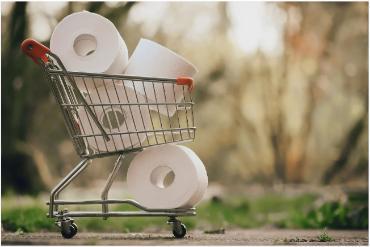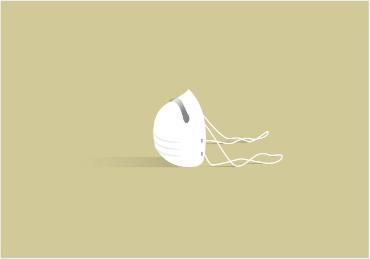The COVID-19 pandemic has altered our lives in such a short period of time. The disease has directly touched thousands. Neighbors have lost loved ones. Many local businesses are now closed. Our close friends are unemployed. We are afraid and isolated. We have all been challenged to think creatively about how our communities, organizations and the country can be made better once the pandemic is over.
In the coming days and weeks, we at the Center for Business Ethics will be taking some time to reflect on what this pandemic means for how we ought to live and work together.
Today we start off this series of discussions with a reminder about how our relationships in a market economy have an inescapable ethical dimension. I am not simply suggesting that markets require a respect for certain moral boundaries, such as honesty and fairness. The larger issue exposed by the COVID-19 pandemic is that there are times when our very use and reliance on the market needs to be put on hold.
Predatory Pricing and Hoarding
Take price gouging, or, what is sometimes referred to as predatory or coercive pricing. During the current pandemic, there have been a number of documented cases of (usually small, secondary) businesses selling hand sanitizer, high-demand food items and so-called “personal protective equipment” (PPE) for nurses and doctors at unusually high prices. Amazon has policies to prevent such pricing within its online marketplace even though sellers have found ways around its technology. The problem hasn't just affected consumers but large businesses and institutions fighting the disease on the front lines.
Our moral objection with predatory pricing is that it exploits a disparity in bargaining position—or power—between two parties. Such disparities exist in all sorts of unremarkable cases. But these cases pale in comparison to the current lack of supply and the dire needs of consumers, hospitals and local governments. COVID-19 shows how certain buyers, in certain markets, in certain circumstances, have little choice but to either pay high prices or go without. This is the basic rationale for executive actions taken by many state governors to fine-tune legal prohibitions on excessively high prices for necessary goods like PPE.

This economic response, however, overlooks two things. First, there is a characteristic lag between when the market sends a signal and the response of manufacturers and sellers to that signal. This lag is not just inherent in any market, but it is something that is amplified when there is a lack of information or very few producers. These imperfections demand responses—moral and legal—that accelerate the downward push on prices that one would “naturally” expect over time.
Second, the market serves a limited social objective, namely to produce and allocate goods in an efficient manner. Economists will reiterate how the price system is a mechanism to achieve efficiency. But efficiency should sit alongside other objectives. COVID-19 illustrates how even when we provision health care through the market, there are times and places where efficiency needs to be balanced against considerations of access, safety and equity. The responses we’ve seen to COVID-19 drive home this recognition.
Cooperation Not Competition
The other lesson that COVID-19 has underscored is that competition—an essential element of the marketplace—is beneficial in normal times but not in moments like these.

Waheed Hussain, a political philosopher at the University of Toronto, has argued that competition sometimes comes with a significant social cost. We lose a kind of “mutual affirmation” of the needs, interests and well-being of those who live with and among us. He allows that there are times to compete. But there are other times when our social connectedness is maintained only when we intentionally embrace the responsibilities we have to our neighbors. Business leaders, some elected officials and government administrators understand this. The question is whether our institutions of public health and emergency preparedness allow decision makers the opportunity to cooperate rather than compete when circumstances are dire.
Markets play an important part in addressing our collective needs and interests efficiently. They will remain important as we prepare for another pandemic. But allowing competition in the market to drive decisions that deserve a consideration of the full range of obligations we have to others has the (often unintended) effect of blinding us to the affirmation of others’ humanity.
